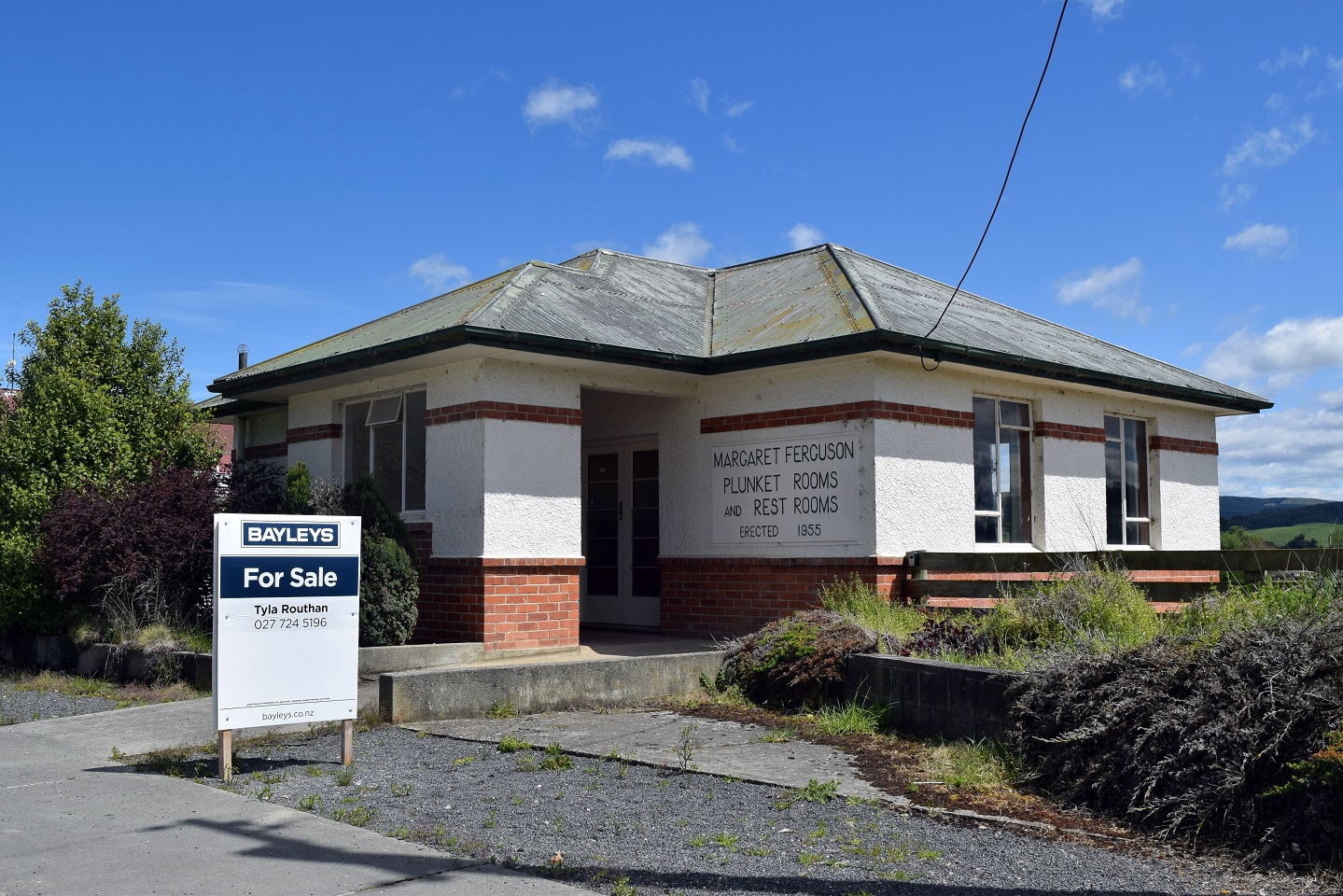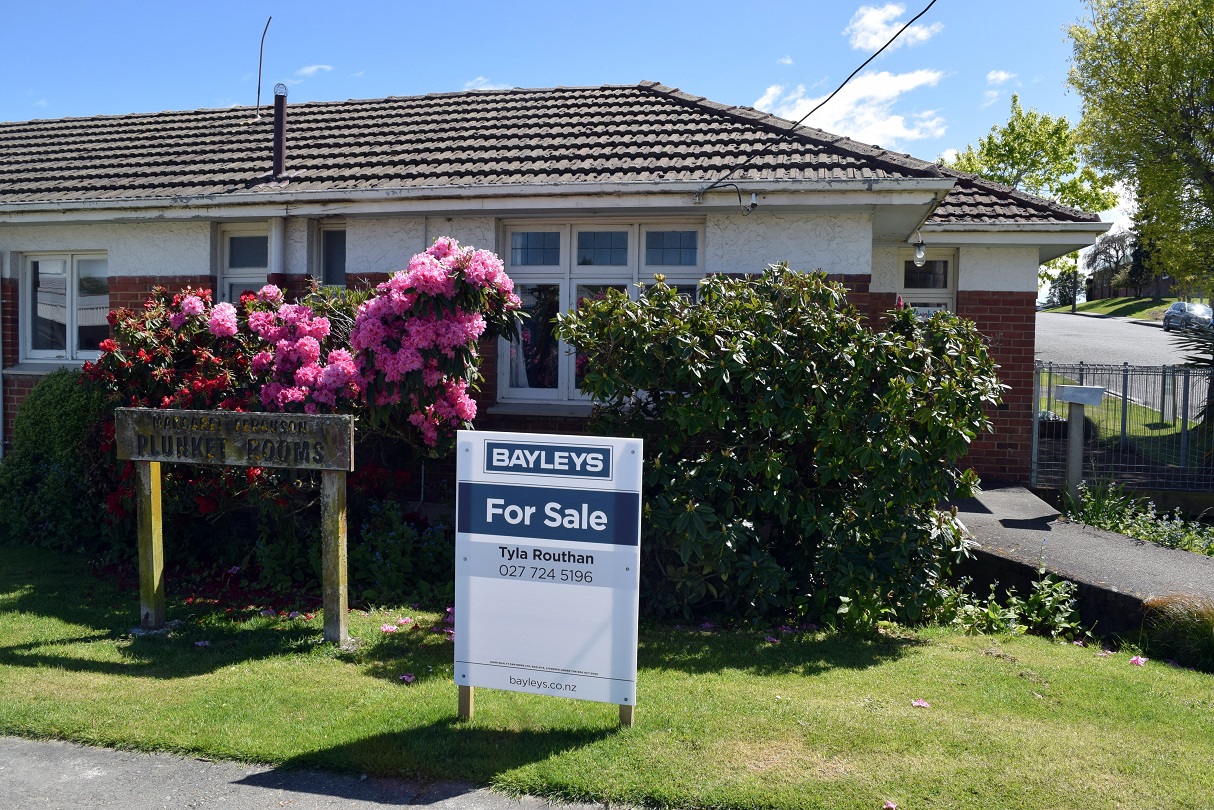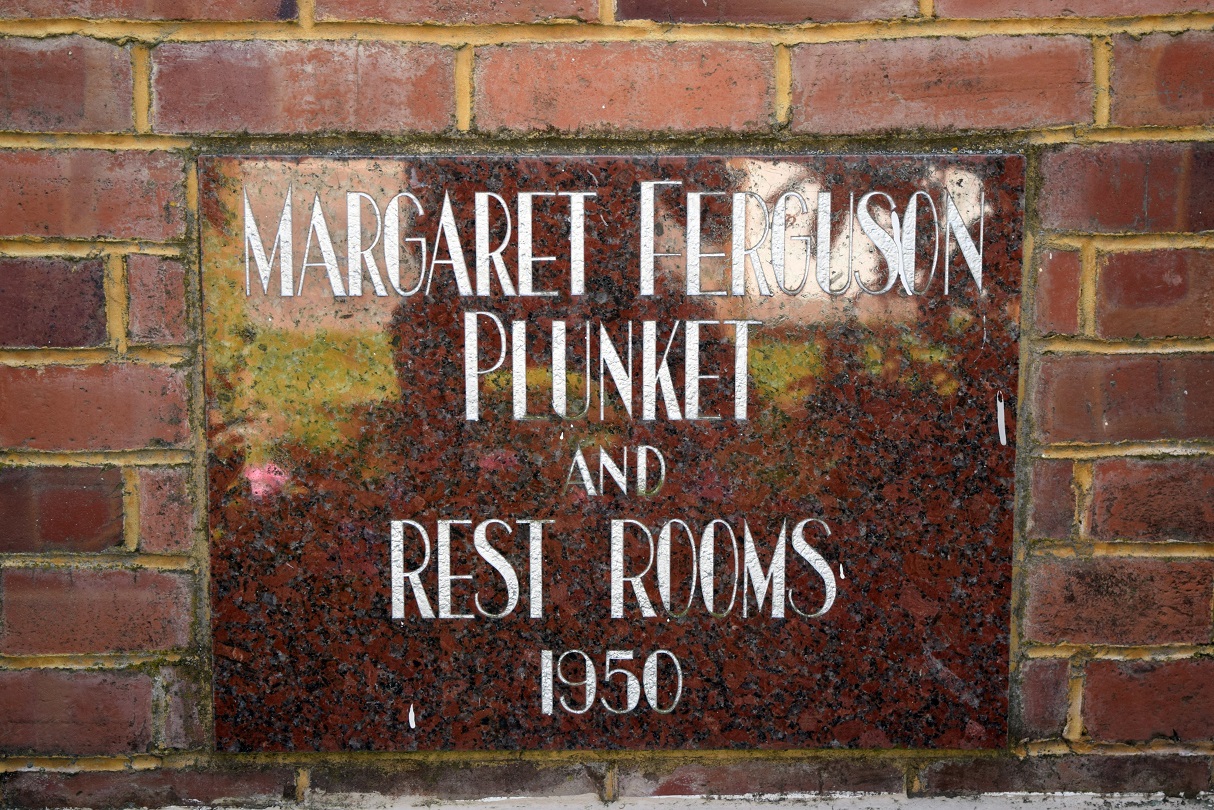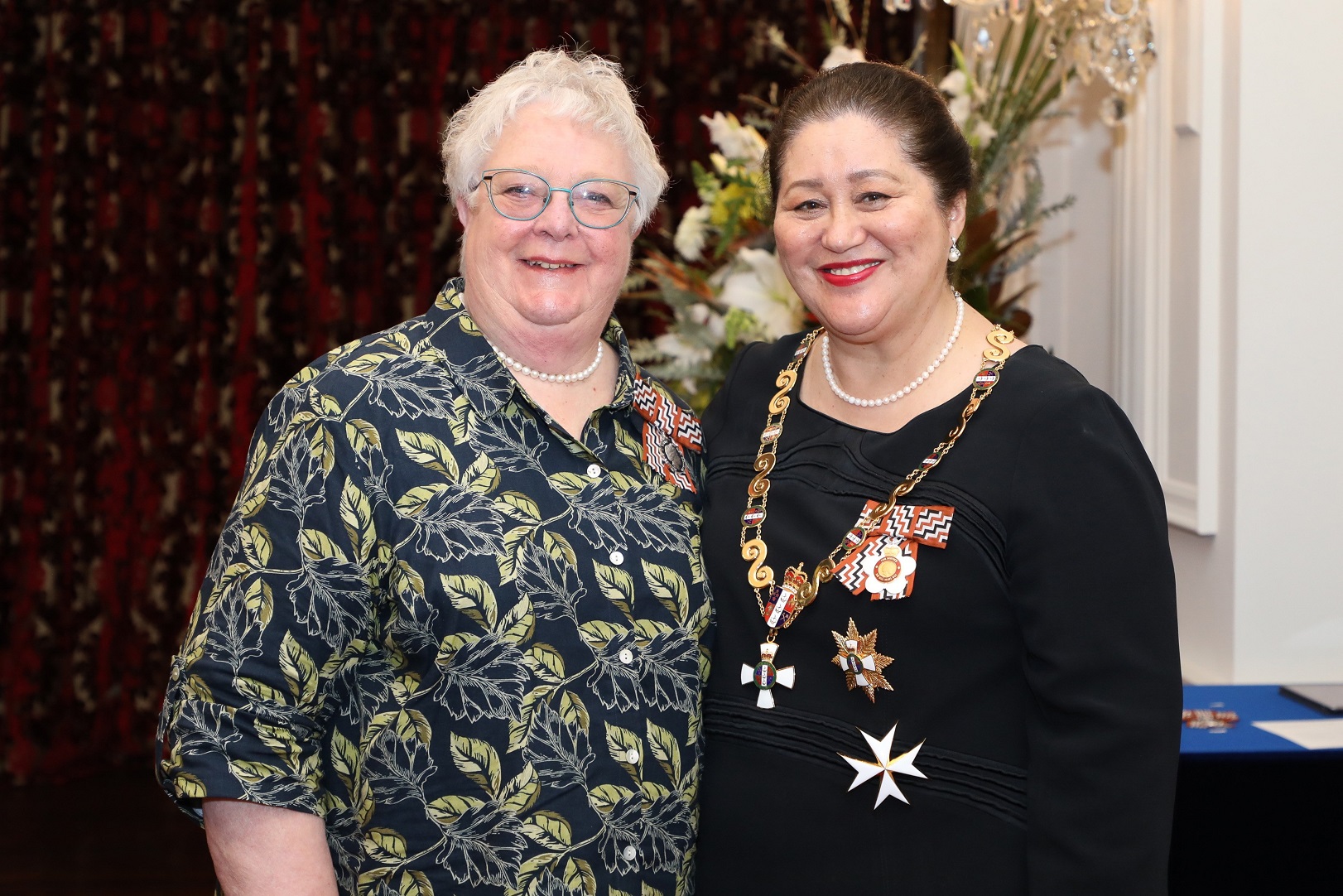
"I am quite bitter about the whole thing," said Plunket life member Gloria McHutchon, of Edievale, a farming locality in the rolling hill country about 20km northeast of Tapanui.
Mrs McHutchon believes the community were the rightful owners of the Plunket rooms in Heriot and Tapanui, rather than the national Plunket organisation.
The Ferguson siblings were a brother and sister which farmed in the district and gave money to the community to build the Plunket clinics and nurses rooms in Tapanui and Heriot.
"They didn’t have children themselves but they saw a need in the community."
The Margaret Ferguson Plunket and Rest Rooms were built in Northumberland St, Tapanui in 1950 and Roxburgh St, Heriot in 1955.
Plunket services had been available in both buildings until they were listed for sale last month.
"The way it’s been done is so disappointing."
A strong committee of volunteers would regularly fundraise to ensure services could continue from both buildings.
Fundraising from the volunteers ranged from calf sales to community dances.

The volunteers provided services in the buildings, from coffee groups for new parents, to supplying car seats for children and taking appointments for health checks for children for weekly visit by a Plunket nurse.
Community volunteers also maintained and upgraded the buildings.
"It was a huge amount of work from volunteers."
Mrs McHutchon was the chairwoman of Plunket’s West Otago branch until a national directive from Plunket to close branches in 2011.
In the branch’s "heyday" there were nine Plunket rooms in her territory between Roxburgh to Waipahi.
The rooms in Tapanui and Heriot were the last of those rooms to be used to provide Plunket services.
A few years after the West Otago branch closed, the ownership of its buildings was moved from the community to the national Plunket organisation.
The community was "horrified" and "fought tooth and nail" to retain the building.
At the time, the West Otago community had fundraised $14,000 to upgrade the kitchen in the Tapanui rooms.

All of the volunteers "disappeared" after losing enthusiasm due to their fundraising efforts being spent in other parts of New Zealand.
"It was the beginning of the end," she said.
In the days of branches, Plunket nurses used to visit the caregivers of newborns every week for the first six weeks and then every fortnight until the baby was 3 months old and then monthly until the age of 6 months.
From then, the caregivers took the child to a clinic each month for health checks until they were 3 years old.
Children then had a yearly check at the clinic until they went to school.
Now children had far fewer health checks from a Plunket nurse in West Otago, she said.
"They hardly see the babies anymore — they’ve cut their appointments back to the bare minimum."
Plunket finance, technology and commercial general manager Matthew Kenny said Plunket ran six public notices in local newspapers advertising its intention to sell its buildings in Tapanui and Heriot and had no feedback opposing the sales.
"We also consulted with several local people who had an interest in the buildings.

Services for both clinics in Tapanui and Heriot had been relocated to the West Otago Business Hub in Norfolk St, Tapanui.
"We acknowledge the generous donation of the building by the Ferguson family in 1945 and the work done by the community over the years."
Both buildings were more than 70 years old and were no longer fit for purpose and the services provided by Plunket.
"They are under-utilised by us for our Well Child Tamariki Ora services, and the Heriot clinic has not been used since May 2021."
The buildings were assessed to be in a poor condition, and upcoming maintenance for each was estimated to cost more than $20,000 in the next few years. The new Healthy Homes standards were also going to incur a cost which Plunket did not have the funds for.
Plunket had been providing services for 115 years and wanted to remain supporting communities across New Zealand for another 100 years.
"So we need to keep adapting to remain financially secure.
"This means we have to make commercially sensible decisions on the best use of the limited amount of funding we have to serve our communities. We understand the communities have strong feelings around their local Plunket buildings, but we need to make sure we can continue to deliver our services in a sustainable way."
Plunket originated in small coastal town Karitane, north of Dunedin, where the first Plunket baby was delivered in 1906.














